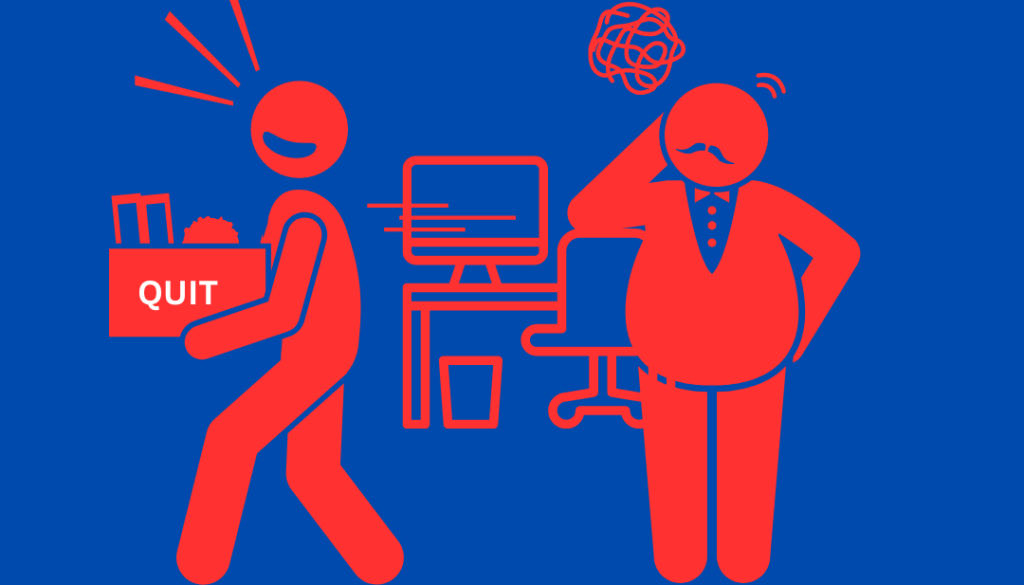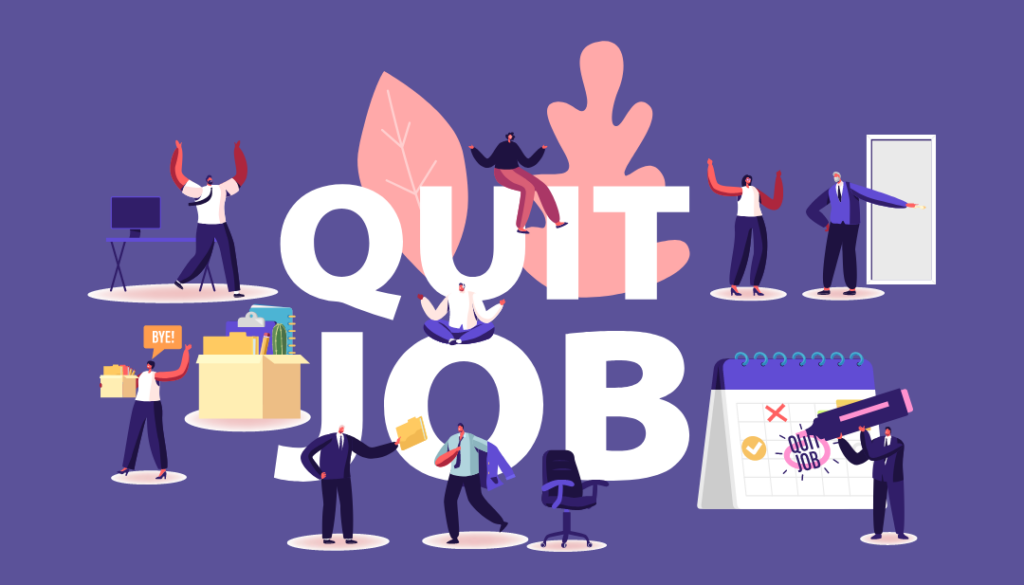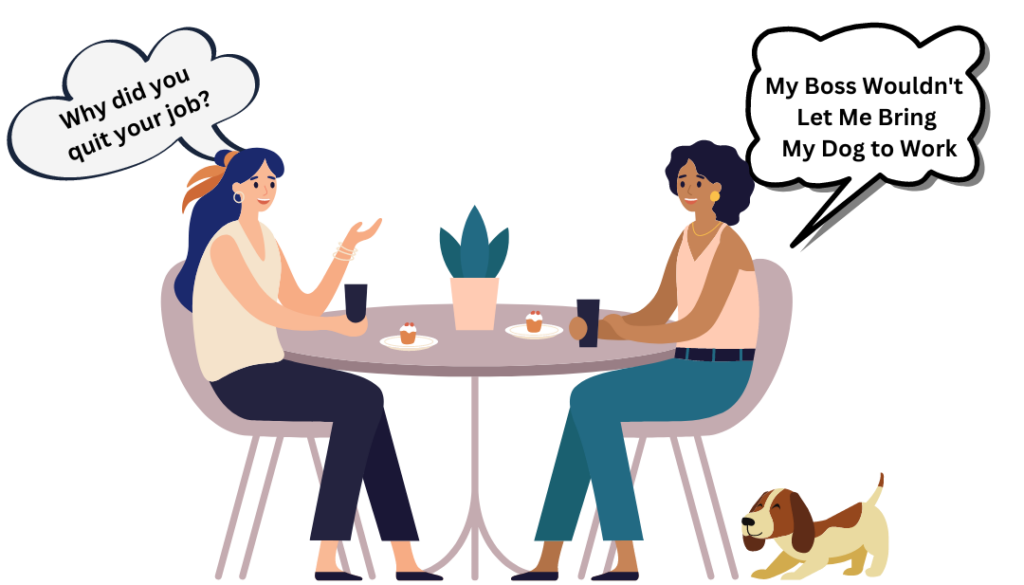Quitting a job is not uncommon for people to prefer a lively and noisy work environment over a quiet one, and it does not necessarily indicate any fault on your part. If someone quits because they are uncomfortable in a quiet space, it does not imply that you were responsible for their departure. It simply implies that they were not a suitable fit for the job due to their preference for a quiet work atmosphere.
The interview is among the most important in a company’s hiring process. No matter how much you like and respect an applicant or invest in employee retention, if you detect any red flags or feel like there’s something off about an interviewee, it’s best to end things as soon as possible. But what happens when someone quits their job and doesn’t explain why? No matter how much effort you put in, you cannot stop an employee from quiet quitting job. We all know that weird and awkward things can happen in the workplace culture from time to time and are responsible for employee turnover. However, some employees take this to a whole new level. In fact, plenty of real-world examples of people who have quit their jobs for bizarre reasons leave everyone scratching their heads in confusion.
What is a quiet quitting job?
Quiet quitting happens when an employee stops showing up to work, never letting their employer know they’re leaving. It’s similar to resignation in that the employee is ending their employment, but very different in that there’s no formal notice or resignation letter. Quiet quitting a job also differs from constructive quitting, when an employee behaves in such a way that it’s equivalent to quitting, but they don’t leave the company. When an employee quits their job but doesn’t give a reason, it can be extremely frustrating and disconcerting for their employer. If you’ve ever had someone quit on you without warning, you know how unsettling it can be. You’re left with questions and no closure, which can lead to a lot of stress and frustration at work.
Why Do Employees Quit Quietly or Leave Without Informing? (Real Reasons Explained)
Quiet quitting or leaving a job without notice is more common than many organizations realize. Employees often walk away silently when they feel disconnected, overwhelmed, or unsure how to communicate their issues. Here are the most common real-world reasons:
1. Burnout and Workplace Stress
Heavy workloads, long hours, and constant pressure can push employees to a breaking point. When stress becomes unmanageable, some choose to leave abruptly rather than confront the situation.
2. Dissatisfaction With the Job or Work Culture
A toxic environment, lack of respect, poor management, or no growth opportunities can make employees feel trapped. When they believe nothing will change, quitting quietly feels like the easiest escape.
3. Better Career Opportunities
Some employees receive better offers and fear losing the opportunity if they wait through a long notice period. To avoid negotiations or counteroffers, they simply leave without notice.
4. Personal or Family Emergencies
Serious health issues, family problems, or relocation needs can force employees to leave suddenly, without going through formal resignation steps.
5. Fear of Retaliation or Negative Reactions
Employees who feel their manager may respond negatively—by blaming, shaming, or treating them poorly—choose silence over confrontation.
6. Feeling Undervalued or Unheard
When employees repeatedly share concerns but see no improvement, they lose trust in the organization. Leaving quietly becomes a way to avoid further disappointment.
7. Miscommunication or Informal Resignations
In some cases, employees think they have communicated their resignation verbally or through a message, but the employer expects a formal written notice.
8. Long-Term Disengagement (Quiet Quitting)
If employees have been disengaged for months due to lack of recognition or unclear career paths, the final step often becomes quietly walking away.
Have you heard about these weird job exit stories?
“My Boss Wouldn’t Let Me Bring My Dog to Work”
We’re unsure if this is real, but it’s still pretty amazing. Someone quit their job because their boss wouldn’t let them bring their dog to work. Who does that?
“My Boss Didn’t Allow Me Listen to My Favorite Song.”
Yes, you must be amazed, but this is one of the bizarre reasons employees quit their jobs because their boss wouldn’t let them listen to their favorite music while they work. While we understand that it can be distracting, quitting your job over it is still pretty extreme.
“My Boss Wouldn’t Let Me Take a Day Off When I Was Sick”
We’ve all been there, but we don’t feel like dealing with work on top of our cold and flu symptoms when sick. When an employee quits their job because their boss wouldn’t let them take a sick day, it can be frustrating for the employer.
“My Coworkers Were Too Loud”
If you’re a manager, you’re probably used to dealing with complaints about your employees’ noise levels. However, it can be frustrating when employees quit their jobs because their coworkers are too loud. While no one should be expected to put up with unbearable noise levels, it’s still an extreme method of quitting a job.
“My Coworkers Were Too Quiet”
Yes, it might sound like a joke, but people have quit their jobs because their coworkers were too quiet. It seems extreme, but some people aren’t comfortable working in a quiet space. That doesn’t mean you were at fault if you prefer a more lively, noisy work environment and someone quits because they prefer a quiet work atmosphere. It just means they weren’t a good fit for the job.
“My Manager Was Too Bossy”
At some point in your career, you may find yourself working for someone who has lots of expectations and is very directive. While this can sometimes be frustrating, quitting your job is not a good reason.
Tips to Help When you want to Quit Your Job
The quiet quitting trend has also affected the Indian job market. Factors like low wages, excessive overtime, unhealthy work culture, and lack of leisure time have left employees exhausted and led to resignations. While such challenges may prompt thoughts of quitting, addressing these situations effectively can help employees manage them without taking drastic steps.
Get to the Root of the Problem
Blaming your job for your frustrations and stress can be easy. However, to make a responsible decision, you must get to the real root of the problem. Exploring your feelings and motivations is important if you want to quit your job. Take time to reflect on your feelings and explore their possible reasons.
Make a Plan
If you decide to quit your job, you must make a plan. If you’re leaving due to dissatisfaction or unhappiness, it’s important to approach the situation responsibly. Don’t just walk out the door one day without having a plan and a next step.
Be Honest With Yourself
It can be easy to feel guilty about wanting to quit your job and wanting to move on to something new and better. However, you need to be honest with yourself and make decisions based on what’s best for you and your future.
What Questions to Ask Yourself Before Quiet quitting job?
What are Your Goals?
If you’re frustrated and ready to leave your current job, you must pause and consider your goals. What are you hoping to achieve in your career, and what do you want your life to look like five or 10 years from now? Once you know what you want, you can start making decisions to help you get there.
What Does Success in Your Field Look Like?
No matter what type of work you do, there are certain benchmarks you should aim for. These are the standards in your industry, what other people in your field are doing. What you need to do to feel like you’ve succeeded.
Is the reason big enough to quit your job without giving the resignation letter?
People quit their job without informing their employers. Yes, there can be multiple reasons and situations, but before quitting, ask yourself why you cannot even inform the employer. Taking decisions in a hurry can harm both the employer and your career.
These benchmarks will help you determine what you must do next and keep you focused on your goals.
Final Words
Quitting your job doesn’t happen overnight, and it’s not something you should do impulsively. If you’ve been struggling with your job for some time and are considering quitting, fully explore your feelings and motivations. If you decide to quit is the best decision for you, then make sure you do it responsibly. Take time to find a new job before you officially leave your current one, and make sure you have a plan for the future.



